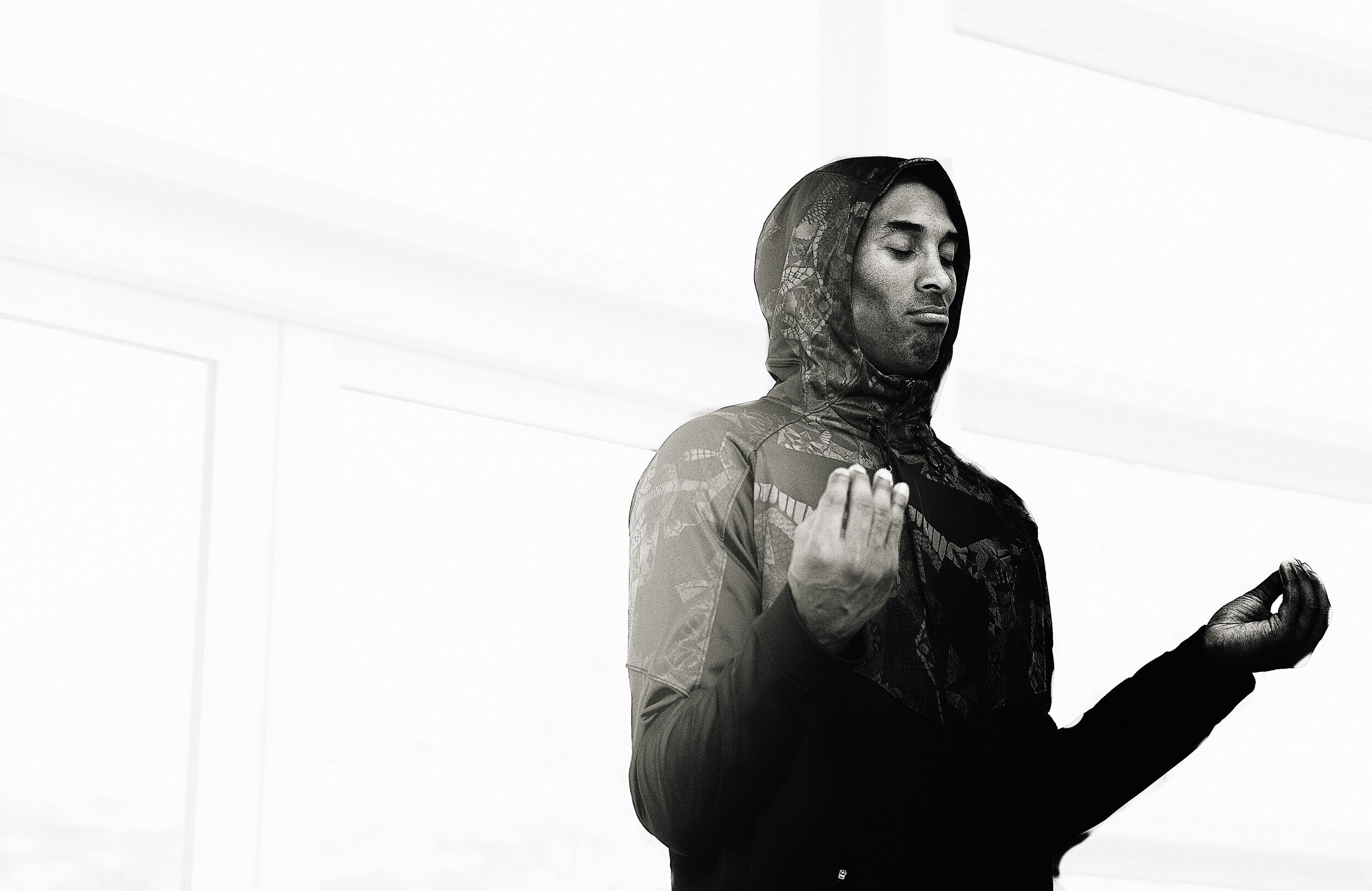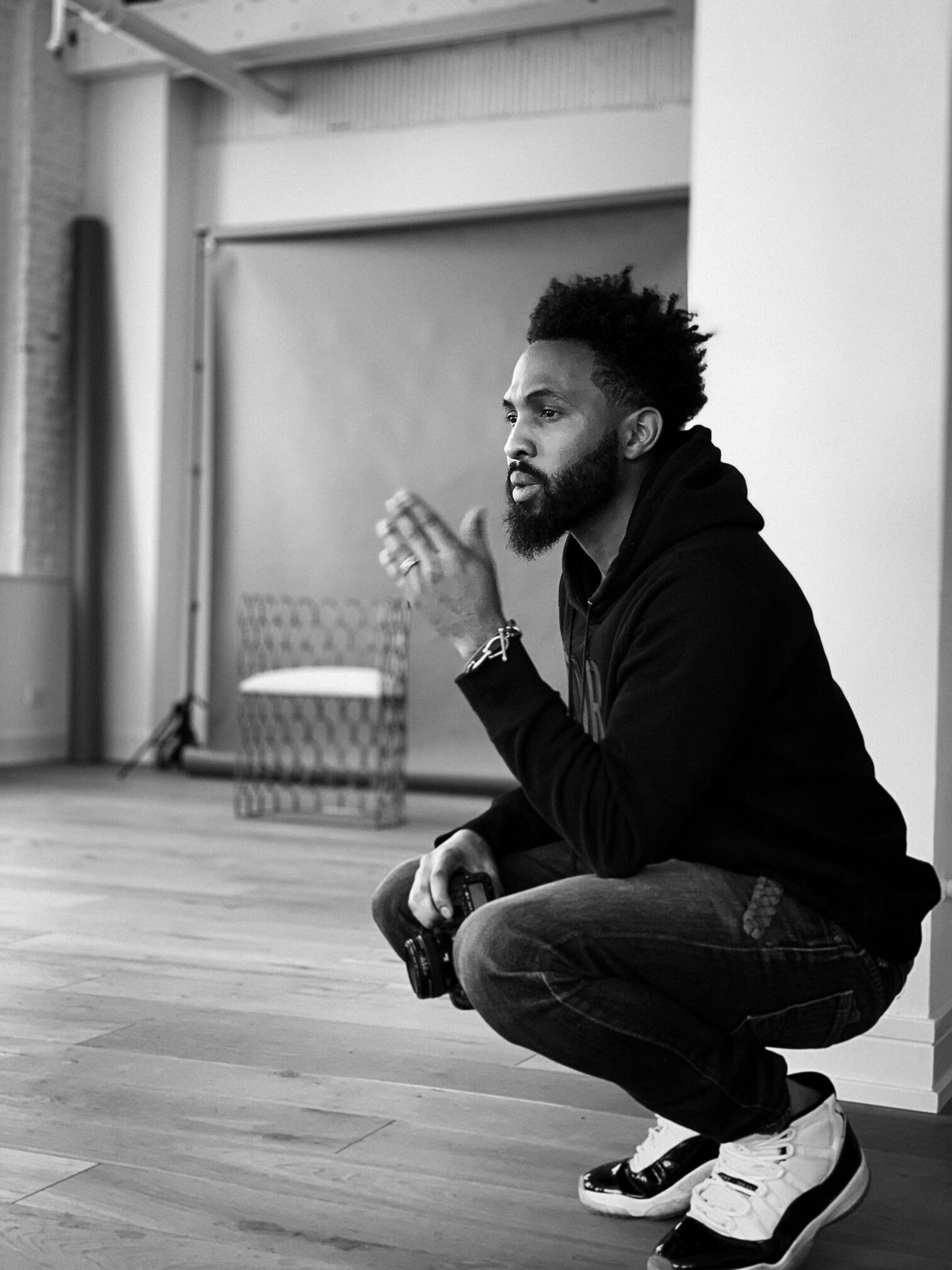Bradley A. Murray, Director, Cinematographer and Photographer
Interview by Bridget Botchway
Meet Bradley A. Murray, a 10-year independent creative vet with natural instincts and a tenacious entrepreneurial spirit. Bradley has built a reputation for creating visual masterpieces with a style that only he can execute. His client list is impressive but not nearly as impressive as his adaptability and perseverance in a field where you hear "no" more times than you hear "yes”. He has become a staple in the creative landscape of Chicago, as a sort of triple threat: a photographer, cinematographer, and director, all housed neatly within his square56 production company. His images are sought after and his name holds weight. But at the end of the day, Bradley remains private, low-key, and as always, independent.
How do you view yourself amongst this changing creative landscape?
I feel like a student and a teacher. I feel like I’ve been here long enough to give advice about things but also things have changed so much where sometimes I feel lost. I've gotten to a point where that blogosphere era (Tumblr circa 2006) felt like it shaped my independent spirit. I don't want to be a part of a scene or say "I want to shoot for this person". No. The gap between legend and rising star is more narrow than ever before due to access to technology and top talent. The world and the filmmaking industry is more independent now than it has ever been, and that makes my mission more obtainable. Legends are more often contemporaries. But it doesn’t dismiss the fact that without the independent nature of the OGs like Spike [Lee], we wouldn’t have gotten here as quickly. I don't want to go work for someone. My mentality is independent. I've worked for myself for 10 years and I could never go back.
Do you ever worry about the instability of being a self-employed freelancer, especially in these uncertain times? Well, both of my parents are teachers with stable jobs, and before graduating (with a degree in photojournalism), I wanted to be a professor, not a filmmaker, photographer, etc. I've thought about working for someone, but there is a bridge that I need to cross that involves understanding business. My understanding of business is evolving, especially around the question of whether a business can weather such an interesting time. I could go corporate, but the most important thing is creating a sound business practice. I learned all my business acumen through trial and error.
Courtesy of Bradley A. Murray
So would you say you’ve made a lot of mistakes in the past?
I'm still making a lot of mistakes. There's personal mistakes and then professional mistakes and the issue is that sometimes they are the same. The major mistake is trying to mix the art world with your corporate work. When I was younger, I would get into jobs and make something with the mindset like "oh this is what they want" and then they would be like, "no, something more simple." So when I would finish something to their standards, I would look at it and I didn’t like it. So after, I would feel slighted. The art world is a completely different industry than the corporate world. Sometimes I would confuse the two and try to merge them within my work. This would cause confusion and the corporate clients couldn't understand such a mission. Until I reach the point where my art is a commodity, the two have to remain separate.
Are there any companies that surprised you in the way they operated?
Nike.
What has been the most memorable production experience you’ve had?Kobe was the nicest out of all the guys I shot for that [Nike] campaign, the easiest to work with and the most patient. But when I first shot Kobe, people didn't actually think that I did it. People said "there’s no way you shot that". It changed my career, because at that time in my life, the people who used to send me jobs...stopped. They thought their jobs and projects were beneath me since I’d already shot Kobe Bryant. When in reality, I still needed and wanted those jobs too.
Courtesy of Bradley A. Murray
Would you ever consider relocating to L.A. or New York?
I torture myself with this question every year. In the wintertime, I go through this crazy depression state and think I gotta get out of here. I love New York—that is my energy. I go out there and I can talk freely with people. People always down to work in NY, people out there see my work and say "you got it", they just feel the vibe. I love LA because you can get drunk off the sun, but I am not an LA person, not even a little bit. I thought for a minute I was, but I snapped out of it. So, I went back and forth from LA to NY. What I do now, is that I try to get out of Chicago in the wintertime. But I won't move because: one, it’s affordable, two, it’s a world class city and people are sleep on it, three, the soil is fertile as fuck, and four, I’m in the middle of something and I can’t start something and not finish it. Everyday I'm understanding my position and the legacy that I'm building in Chicago. I have all these connections here. I make money here without even trying. My wife is here, my parents are here. It's keeping me here. I don't want to struggle to survive, and I would in NY. This is a sleeper city. You can shoot footage on the street in Chicago, no permit, same day—and that fits with my independent, run-and-gun attitude. I can make more shit here. I can’t do that in NY or LA.
What’s the secret to balancing personal work, corporate work, and life with your family?
I've found the key is really me and my own priorities. You have to find enough time for personal projects that make you different. You just have to. I still have problems with that. I'm trying to figure it out still. In the beginning—you can ask [my wife]—I would work all the time. I would tell her that I prioritized my work over her. I used to be afraid of making her my top priority because I just take things (projects, relationships, people, etc.) to the extreme. It wasn't really until last year that I just started turning my phone off completely. But that was because I got to a point where I can afford to miss an email or a call and delegate work to other people on my team. Once I did that, I was like "oh this is how life should be".
Courtesy of Bradley A. Murray
Do you have any favorite collaborators?I work a lot with Harold Green (poet, artist, and activist). He's a genius and a friend to me. On my last project (ampersand), I just told him my idea and asked if he could write something to be spoken over the video, and in less than a day he sent something over and I was just in awe. Thinking like "oh he got it". You just have to find people, or your person who compliment your work, amplify it. Or you bring out the best in each other. My business partner in square56, Onasis, is an outgoing person that can just find opportunities, and he does more experiential and event ideas that always incorporate a production element, and that's where I come in. We been doing this for six plus years.
How did you meet Onasis?I didn’t like Onasis when we met. He was a club photographer and I always thought it was corny. I am not a club photographer and I would never do clubs. But he approached me on some business tip and it was thorough and I was down.
Ever look at old work?
I look at old work and I love it. I look at my new work and think it’s ass. My work ages well. I was doing work then that people are doing now.
Courtesy of Bradley A. Murray
What has your experience been like bidding on potential jobs?
The bidding process is hard. It’s just a lot of projects you don’t get. There are some projects I look back like if I landed it, I would have been set financially. You go through seasons where you don’t get five, six, maybe eight different jobs and get rejected from all of them.
Eight no's?! Why did you keep going?
You gotta be crazy. You have to be crazy to do this. It’s almost like getting fired because you do so much work for it. Then all of a sudden, you don't have it, it’s not yours. So, imagine getting fired 8 times within a 3 month period. You start to think to yourself you're less than, get depressed, questioning why you're even doing it. Then you realize that it’s just corporate shit, not what you love, and you gotta keep doing shit you love.















